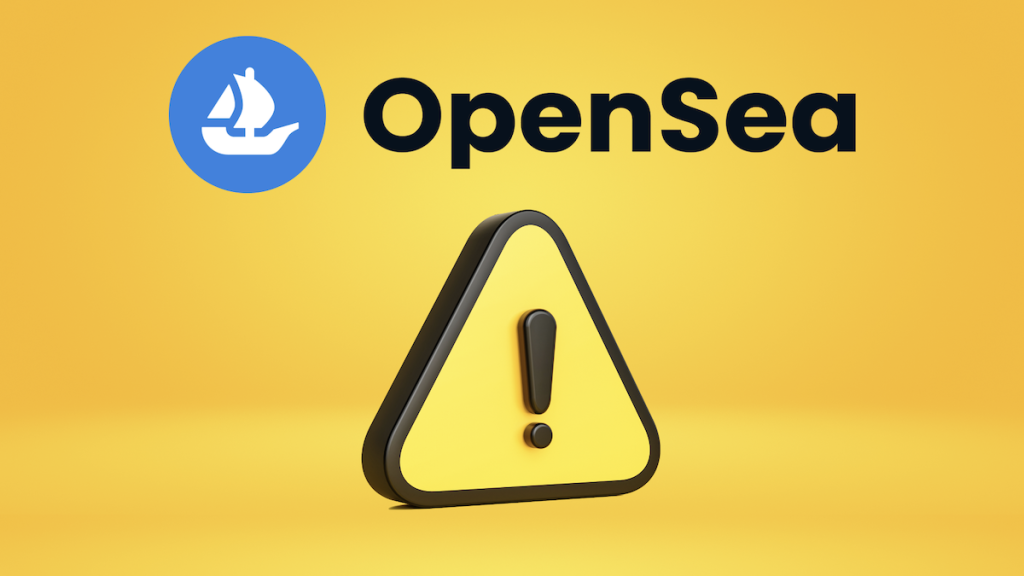The faulty OpenSea stolen item policy is costing the platform’s users lots of funds. At least that is the opinion of Franklin, the sixth largest holder of Bored Ape Yacht Club NFTs. In a space of a few days, scammers gamed the policy to sell him stolen BAYC NFTs. Unfortunately, there is no way for him to sell the NFTs and recoup his funds.
The first exploit occurred on January 20. Franklin mentions in a tweet that a bad actor took advantage of OpenSea’s stolen item policy to sell to his collection offer.
Hey @opensea can you PLEASE fix your stolen ape policy? This ape with a yellow caution mark sold to my OpenSea WETH offer for 65 WETH. You collected 1.625 WETH in fees, and I cannot resell this ape. It was already marked before the sale happened. You have failed with this policy. pic.twitter.com/jGO9sClKbi
— Franklin (@franklinisbored) January 20, 2023
The image shared clearly shows the Ape number #9109 with a yellow checkmark indicating suspicious activity. After two days, the attacker would strike again and use the match advanced order function to mint and sell him a stolen NFT flagged for suspicious activity.
It happened again – second time in a week someone has exploited OpenSea’s stolen ape policy to sell to my collection offer after it was already marked as “under review for suspicious activity” (yellow mark). They used a “Match Advanced Order” function to “Mint” and sell to me. pic.twitter.com/21hijgtUse
— Franklin (@franklinisbored) January 22, 2023
It is evident that OpenSea recognizes security concerns when they launched a new initiative in June, which includes a feature that guarantees only valid transactions are visible. This was a positive move for OpenSea, however, things haven’t always been plain sailing for the marketplace and users since.
What Is OpenSea Doing About Its Faulty Stolen Item Policy?
The incident evoked anger within the crypto community, which feels the marketplace doesn’t care about its users. While they are happy to take fees on any sale, they are slow to fix any errors that lead to such exploits. It turns out the problem has been around for a while, and OpenSea has done little to address it.
According to its website, OpenSea is against the sale of stolen items, which breaches their terms of service. If the marketplace gets a notification about a potentially stolen item or those with suspicious activity in their transaction history, it will “disable the ability to buy, sell, or transfer the items.”
However, based on Franklin’s experience, this policy has failed as bad actors have found a way around it. For now, users are waiting to see what the NFT marketplace does to compensate those affected by such exploits.

